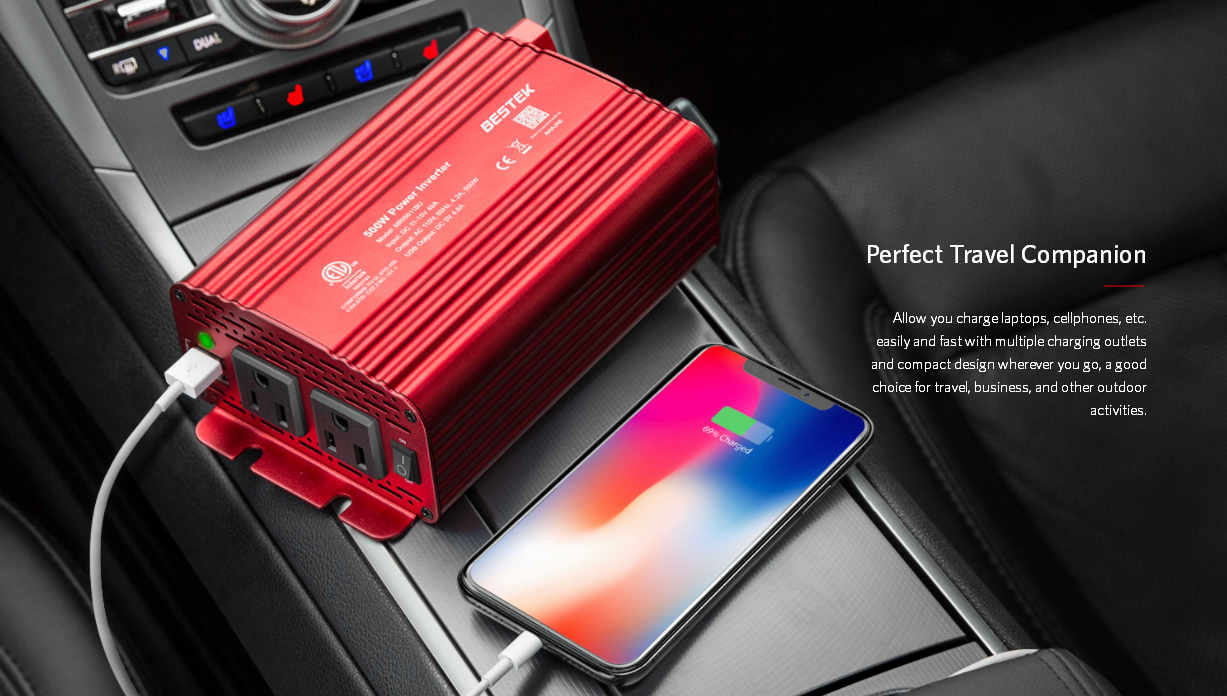Inverter technology is one
representative of multiple modern renewable energy technologies. Great
achievements have been made these years in inverter area. The advanced
inverter technology has wide applications and extensive benefits.
Knowing more about inverter technology is helpful to build an
eco-friendly environment with low energy consumption and low noise.
Identification of inverter technology
First
of all, what is inverter? An inverter is a kind of voltage converter
which also includes rectifier. An inverter is designed to convert DC
current to useable AC current for any AC appliances. This voltage
converting process applied the technology of inverter.
Inverter
technology is one of the latest renovation of electro compressor motor
technologies. This technology was adopted in the air conditioning units
as early as 1980s. Nowadays inverter technology is used more widely,
ranging from home appliances like TV, emergency lights, electronic fans,
cellphone chargers, radios, to automobile accessories like car
refrigerator, air-conditioner and office equipment including laser
printer, computer.
Inverter technology actually applied the
amplifier technology. For example, in air conditioners, the inverter
technology is used to heating technology. The inverter unit has a
variable-frequency drive that includes an adjustable electrical inverter
which can control the speed of compressor motor. In that case, the
compressor and output of cooling/heating are adjusted accordingly, so
the air conditional would always work at a stable speed.
Functions of inverter technology
Inverter technology plays an important role in electronic field because of its multiple advanced functions.
1. Voltage conversion
An
inverter converts DC power generated from other power resources to
different voltage in order to supply enough power for a load or
distributed grid.
2. Power transfer optimization
Inverters can
optimize the transfer of power by Maximum Power Point Tracking. This
optimization is supported by figuring out the ideal equivalent
resistance of current, voltage, and the respective change rate.
3. Grid Synchronization
The inverter output is built in the form of wave. This AC waveform is synchronized with utility electrical distribution system.
4. Disconnection
Built-in multiple protection systems, an inverter can disconnected automatically from the power distribution system.
5. Storage interfacing
Inverters may enable batteries or other devices to store energy form distributed generator.
Benefits of inverter technology
There
are many advantages to use inverter technology. That is why more and
more people want to renew and use inverter technology in daily life and
industry field.
Energy-saving
Equipment with inverters can help reduce up to 50% energy costs, more energy-efficient than non-inverter devices.
More stable
When
using inverters, there is no ON/OFF transition that non-inerter system
has so that the temperature condition maintains more stable with less
fluctuations. That is why inverter technology was applied easily in air
conditioners.
Less noise
Equipment with inverters has lower noise
when in operation, as the motor with inverters inside can regulate
itself automatically, so the motor can work rarely with full energy.
Faster
Inverters
can faster response to the variable heating and cooling loads reach the
target temperature than non-inverters. That also brings more comforts
for people.
Safer
Built-in protection systems, an inverter can effectively reduce the risk of electromagnetic interference with other equipment.
Smarter
Inverters can compute the peak of current, voltage from compressor intelligently.
Trends of inverter technology
With
rapid developing of technology, inverter technology is deemed to have a
brighter and further future. The future trends will be embodied mainly
in two facts.
Function expansion
As mentioned above, there are
a lot of standard functions of inverters. Coming back the revolution of
inverter technology, you may find that inverters are fist called DC to
AC voltage converter, and later inverters were expanded in PV systems.
At present, inverters are serve for a large areas including household,
motors, communication, monitoring, energy storage, grid interaction,
emergency, etc. More inverter functions will be explored and applied in
the future. Inverter technology will contributed to build a smarter
home, smarter office by controlling and regulating the load for energy
distributing and shifting. On the other hand, inverter technology will
also show its advantages in macro field to help build mini-power
structure against traditional large single power source.
Smaller size
With
the expanding of inverter functions, inverters will be used in a wider
areas and portability will be one problem that people focused on in the
future. Smaller inverters with compact appearance and light weight, will
be more convenient for people to take out for traveling and other
outdoor activities. In the future a cost-effective inverter will be a
new electronics charging demand.
Inverter technology is a great
progress in human development process. Multiple inverter functions and
benefits will bring more convenience to industry and life, and build an
eco-friendly environment.

















